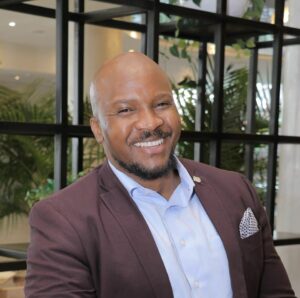It refers to a persistent feeling of self-doubt and the belief that one’s success is merely due to luck or external factors rather than one’s skills or abilities. Those expriencing imposter syndrome often believe that they will be exposed as frauds at any moment. One is left feeling like a fraudulent imposter despite actual competence and accomplishments. This psychological condition can manifest in various ways, often undermining self-esteem and hindering personal growth. It is intricate to have these feelings of inadequacy when there is so much evidence and acknowledgment that proves to the contrary. Recently I shared a small snippet from a talk I did on the topic and the response was overwhelming; most people said: “You’re describing me, I just didn’t know how to explain it.”
How does imposter syndrome manifest itself?
Imposter syndrome manifests itself in various ways, including:
- Perfectionism: Setting unrealistically high standards and fearing failure. Many psychologists agree that perfectionism is a manifestation of being insecure about one’s competencies and fearing
Perfectionism is actually fear of imperfection and the negative perception that may stem from delivering work that may be seen as inferior.
- Overworking: Compensating for perceived inadequacy by working excessively.
- Self-sabotage: Undermining one’s own achievements or hesitating to take on new challenges for fear of failure.
- Discounting success: Attributing successes to external factors and not personal competence. Minimising one’s brilliance by saying things like: “Oh it’s nothing really”, even though the person needs that validation.
- Comparing to others: Constantly comparing oneself unfavourably with Often perceiving other people’s work as being better than yours, even when evidence presents otherwise.
Imposter syndrome is a widespread challenge that affects many individuals across various fields.
Recognising its presence and understanding its manifestations and causes are crucial steps toward conquering it. By implementing strategies for self-affirmation and learning from successful figures who have faced similar struggles, one can overcome imposter syndrome and embrace one’s true capabilities. Remember, you are not alone in this battle and your accomplishments are a testament to your competence and hard work.
Companies need to be aware of this phenomenon and build cultures that are inclusive, encourage individualism, have a fair reward system and encourage leaders to build collaborative and focus on a growth mindset rather being fixed in their ways.
What are the causes of imposter syndrome?
Imposter syndrome can arise from multiple sources:
- Early childhood experiences: Upbringing that emphasises the importance of achievement can instil a fear of failure.
- Personality traits: Perfectionists and high-achievers are often more prone to imposter syndrome. High achievers often fear not being able to sustain the high level of performance.
- Workplace environment: A highly competitive or critical workplace can exacerbate feelings of inadequacy, more so if the workplace has a tendency to punish mistakes and poorly reward excellence.
- Cultural factors: Societal pressure and stereotypes can lead individuals to doubt their abilities. In a country like South Africa, historically certain people groups were viewed as inferior and incapable. Such negative views are harmful to esteem, subsequently creating a mindset of inferiority, fuelling our inherent vulnerability to poor self-esteem.
- Major life transitions: Career changes, promotions, or new responsibilities can trigger imposter s When we get promoted, we have to grow into who we need to be to reach the level of proficiency that only comes with time and experience. During that process, we are prone to feeling unfit and unqualified for the position thus fuelling our imposter syndrome.
How can you overcome imposter syndrome?
- Acknowledge feelings: Recognise and accept that you are experiencing imposter s Identify it, understand it, manage it and take charge of it. One cannot overcome what one won’t acknowledge.
- Talk about it: Share your feelings with a trusted friend, mentor, or therapist. Preferably do not discuss this with someone at work. Create safe ecosystems outside of your professional environment to discuss this confidentially.
- Reframe thoughts: Challenge negative self-talk by focusing on your accomplishments. Talk to yourself based on what you have achieved not what you fear. For example say: “I have done this before and I can do it again. In fact I am more experienced now and I will do better than before.”
- Set realistic goals: Avoid perfectionism and set achievable, incremental goals. Goals should be challenging but not anxiety triggers. Know your own process of excellence so that you can repeat your success more consistently. Have an excellence mindset, not a perfectionist mindset. Excellence is about your best every time, not the best of everyone.
- Track achievements: Keep a record of your successes to remind yourself of your abilities. You are competing with your potential, not others. The objective should be to reach your optimal self so that you can achieve the best life you can, based on the best version of you.
- Embrace failure: Understand that failure is part of growth and learning. Don’t label failure as proof of incompetence if it is merely an indication of growth gaps. Accept that, when you begin anything, you need to learn, grow and become proficient and that includes potential failures as you learn.
- Seek support: Surround yourself with supportive individuals who believe in your capabilities. To the best of your ability, avoid and minimise engagement with people who criticise you habitually. Be in an ecosystem that gives constructive feedback and encourages you to go after what you want and succeed.

Jabu Zwane is a mindset development specialist who helps professionals, executives and organisations to build critical mindsets, vital for success in leadership, confidence, high-performance, effective communication, entrepreneurship, relationship management and diversity inclusion. As a global speaker, executive coach, facilitator and trainer, Mr. Zwane has done work for over 25 companies, in over 10 countries on three continents, including multi-nationals and institutions of higher learning.
Founder of The Mindset Development Institute, he has developed over 30 mindset models for critical thinking in personal development, leadership, entrepreneurship, diversity inclusion, effective communication, and high performance, since 2019.
https://www.jabuzwane.co.za/

